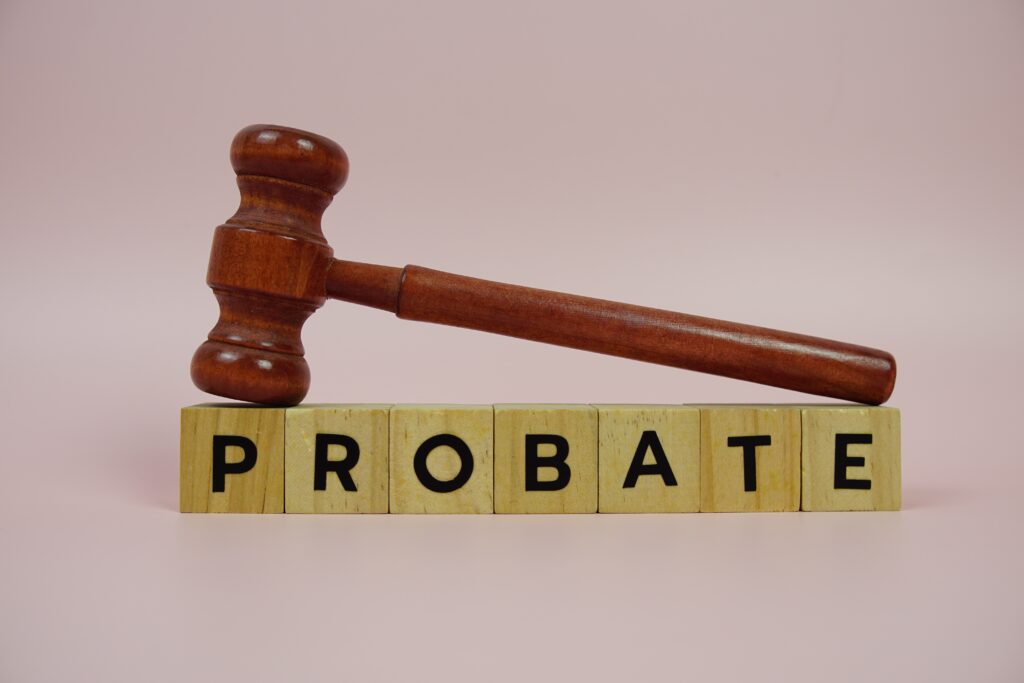
Probate is a legal process that occurs after someone passes away. It involves validating the deceased’s will in court, settling their debts, and distributing their assets to their beneficiaries. If you are the executor of someone’s estate, the probate process might seem daunting at first. But the process can be simplified if you know what documents are needed. In this article, we will explore the documents required for probate and how they are used.
Understanding Probate: An Overview
Before we dive deep into the document requirements for probate, let’s first understand what probate is and how it works. At a basic level, probate is a legal process that manages the assets and liabilities of a deceased individual. The process ensures that the deceased’s wishes are carried out according to their will or state laws.
What Is Probate?
Probate is a legal process that oversees the distribution of the assets and liabilities of a deceased individual. The process begins with a will, which is a legal document that outlines how the deceased’s assets will be distributed, who will manage their affairs, and who will receive what property. If there is no will, the assets are distributed based on state laws.
Probate can be a complex process, especially if there are disputes among family members or beneficiaries. It’s important to have a knowledgeable attorney who can guide you through the process and ensure that your loved one’s wishes are carried out properly.
The Probate Process
The probate process typically involves the following steps:
- Filing for probate with the local probate court
- Notifying beneficiaries and creditors of the deceased’s death
- Valuing assets and liabilities of the deceased
- Paying off debts and taxes owed by the deceased
- Distributing the remaining assets to beneficiaries
- Closing the estate
Each step of the probate process can be time-consuming and complicated. It’s important to have a skilled attorney who can help you navigate the process and ensure that everything is done correctly.
Importance of Probate Documents
Documents are an essential component of the probate process. They help the court determine the validity of the will, identify and value the assets and liabilities of the deceased, and distribute them according to the wishes of the deceased or state laws.
Some of the documents that are required for probate include:
- The deceased’s will
- Death certificate
- Inventory of assets and liabilities
- Bank statements and financial records
- Tax returns
- Proof of debts and expenses
Having these documents in order can help expedite the probate process and ensure that everything is done correctly. It’s important to keep these documents organized and in a safe place so that they can be easily accessed when needed.
In conclusion, probate can be a complex and time-consuming process, but it’s essential for ensuring that a deceased individual’s wishes are carried out properly. By understanding the probate process and the importance of probate documents, you can be better prepared to navigate this difficult time.
Essential Documents for Initiating Probate
When a loved one passes away, dealing with their estate can be a challenging process. The probate process is a legal process that involves the distribution of a deceased person’s assets. To initiate probate, there are several documents that you will need to gather. These include:
The Last Will and Testament
The last will and testament is a legal document that outlines how the deceased’s estate will be distributed. It is essential to have the original will on hand when initiating probate. The will also specifies who will be responsible for managing the estate. This person is known as the executor. The executor is responsible for ensuring that the deceased’s assets are distributed according to their wishes.
It is important to note that if the deceased did not have a will, the probate process can become more complicated. In this case, the court will appoint an administrator to manage the estate.
Death Certificate
The death certificate certifies the passing of the deceased and should be obtained from the local registrar’s office. It is essential to have several copies of the death certificate as most institutions will require a copy before releasing any assets.
It is important to note that the death certificate should be obtained as soon as possible after the passing of the deceased. This will help to avoid any delays in the probate process.
Petition for Probate
The petition for probate is a legal document that is filed with the probate court. It outlines the details of the deceased’s estate and requests that the court recognize the will and appoint an executor. The petition for probate is typically filed by the executor or administrator of the estate.
It is important to note that the petition for probate must be filed in the county where the deceased resided at the time of their passing.
Notice of Probate
The notice of probate is a legal document that is sent to beneficiaries and creditors of the deceased. The notice informs them of the probate proceedings and provides them with instructions on how to file claims against the estate.
It is important to note that the notice of probate must be sent to all known beneficiaries and creditors of the deceased. This includes anyone who may have a legal claim to the estate.
In conclusion, initiating probate can be a complex process. However, by gathering the necessary documents, you can ensure that the probate process runs as smoothly as possible. If you have any questions about the probate process, it is recommended that you consult with a qualified attorney.
Additional Documents Required for Probate
Probate is a legal process that involves the distribution of a deceased person’s assets to their heirs and beneficiaries. While the process can be complex, having the right documents can make it easier. In addition to the standard probate documents, there are several additional documents that are required for successful probate proceedings. These include:
Inventory of Assets
The inventory of assets is a crucial document that lists all the assets of the deceased, including real estate, personal property, and financial assets. It is essential to have this document prepared to value the estate accurately. The inventory of assets should include a detailed description of each asset, its location, and its estimated value. This document helps the executor of the estate to determine the value of the assets and the distribution of the estate to the heirs and beneficiaries.
Appraisals of Property
Real estate, personal property, and other assets of the deceased may need to be appraised to determine their current market value. Appraisals help with asset valuation and distribution. The appraisals of property are necessary to ensure that the assets are distributed fairly among the heirs and beneficiaries. The appraisals should be conducted by a qualified appraiser who is knowledgeable about the type of asset being appraised.
Debts and Liabilities
A list of the debts and liabilities of the deceased is required to pay off any outstanding debts, such as credit card bills, loans, and taxes. The executor of the estate must ensure that all debts and liabilities are paid off before distributing the assets to the heirs and beneficiaries. Failure to pay off the debts and liabilities can result in legal action against the executor of the estate.
Tax Returns and Tax Clearance
The executor of the estate is responsible for filing the deceased’s final tax returns and paying any owed taxes. Tax returns should include all sources of income, deductions, and credits. Failure to file the final tax returns can result in penalties and interest charges. Tax Clearance is a document that certifies that all taxes have been paid and the estate is clear of any tax liability. The executor of the estate must obtain tax clearance before distributing the assets to the heirs and beneficiaries.
In conclusion, probate can be a complicated process, but having the right documents can make it easier. The additional documents required for probate proceedings, such as the inventory of assets, appraisals of property, list of debts and liabilities, and tax returns and tax clearance, are essential to ensure that the assets are distributed fairly among the heirs and beneficiaries. It is important to work with an experienced probate attorney to ensure that all the necessary documents are prepared correctly and that the probate process goes smoothly.
Special Circumstances and Additional Documents
There are several other documents that might be required for probate, depending on the situation. These include:
Trust Documents
If the deceased had a trust, the trust documents would need to be reviewed to determine how the assets will be distributed.
Life Insurance Policies
Life insurance policies can be used to pay off outstanding debts or distribute funds to beneficiaries. It is essential to have a copy of the policy on hand to initiate the claims process.
Prenuptial or Postnuptial Agreements
Prenuptial or postnuptial agreements might impact asset distribution and should be reviewed during probate.
Guardianship or Conservatorship Documents
If a minor or vulnerable adult is named as a beneficiary, it might be necessary to appoint a guardian or conservator. The relevant documents will need to be filed with the court.
Conclusion
Probate is a complex legal process that involves reviewing and validating the deceased’s will, identifying their assets and liabilities, and distributing them to beneficiaries. Having all the necessary documents can make the process less stressful and more streamlined. By knowing what documents are required and keeping them organized, you can simplify the probate process and ensure that the deceased’s wishes are carried out according to their will.




